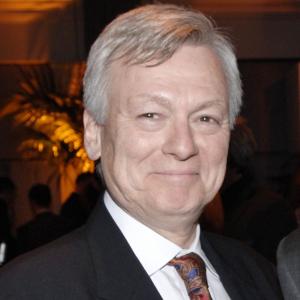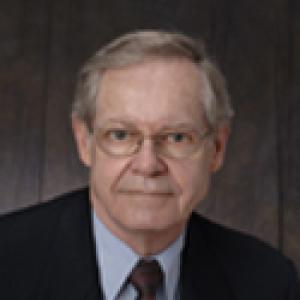B.A. (Saskatchewan), Ph.D. (Princeton), OC, FRSC, LLD, Ph.D.
Thomas J. Courchene was born in Wakaw, Saskatchewan, and was educated at the University of Saskatchewan (Honours BA, 1962) and Princeton University (Ph.D., 1967), with a post-doctoral year at the University of Chicago (1968-9). From 1965 to 1988 he was a Professor of Economics at the University of Western Ontario. Dr. Courchene spent the fall term of 1986 as a visiting Professor at Ecole nationale d'administration publique (Montreal). For the academic year 1987/88, he occupied the John P. Robarts Chair in Canadian Studies at York University. In 1988, he accepted the Directorship of Queen's new School of Policy Studies (1988-92). From 1992 until his retirement in 2012 Courchene held the Jarislowsky-Deutsch Professorship in Economics and Financial Policy at Queen's, where he was a member of the Department of Economics, the School of Policy Studies and the Faculty of Law. He remains the Senior Scholar at the Institute for Research on Public Policy in Montreal, a position he has held since 1999. He served as Director of Queen's John Deutsch Institute for the Study of Economic Policy from 1993-99 and from 2001-02 and as Director of Queen's Institute of Intergovernmental Relations from July 2006 to February 2010.
Courchene is the author or editor of some 60 books and has published some 300 academic papers on a wide range of Canadian public policy issues. Among the authored books are: a four volume series on Canadian monetary policy for the C.D. Howe Institute; In Praise of Renewed Federalism (C.D. Howe); Social Policy in the 1990s: Agenda for Reform (C.D. Howe); Equalization Payments: Past, Present and Future (Ontario Economic Council); Economic Management and the Division of Powers (Macdonald Royal Commission); and A First Nations Province (Institute of Intergovernmental Relations, Queen's). A collection of his earlier articles appears in Rearrangements: The Courchene Papers (Oakville, Mosaic Press). His 1994 book, Social Canada in the Millennium was awarded the Doug Purvis Prize for the best Canadian economic policy contribution in 1994 and his book, From Heartland to North American Region State: The Social, Fiscal and Federal Evolution of Ontario (1998, with Colin Telmer) won the inaugural Donner Prize for the best book on Canadian Public Policy. His latest book -- A State of Minds: Toward a Human Capital Future for Canadians -- was published in 2001 by the Institute for Research on Public Policy (Montreal). Among his more recent essays are Rekindling the American Dream: A Northern Perspective (2011, the inaugural IRPP Policy Horizons Essay) and Policy Signposts in Postwar Canada: Reflections of a Market Populist (2012, marking the occasion of IRPP's 40th anniversary).
Dr. Courchene was Chair of the Ontario Economic Council from 1982 to 1985, has been a Senior Fellow of the C.D. Howe Institute (1980-99), is a Fellow of the Royal Society of Canada (elected 1981) and is a Past President (1991/92) of the Canadian Economics Association and of the North American Economics and Finance Association (2000-01). He has received Honorary Doctorates of Laws from the University of Western Ontario (1997), the University of Saskatchewan (1999), and the University of Regina (2007). On the occasion of the 100th anniversary of the University of Saskatchewan (2007) Courchene was selected as one of the 100 Alumni of Influence, and in 2009 was also included among the 100 Alumni of Influence as part of the celebration of the 100th anniversary of the University of Saskatchewan College of Arts and Sciences. He is a recipient of the Molson Prize for lifetime achievement in the Social Sciences and Humanities (1999). In April of 1999, Thomas Courchene was invested as an Officer in the Order of Canada.
Tom and Margie Courchene live along the St Lawrence River in Kingston, Ontario.
Research Interests
- Canadian and international macro-economic institutions and policies
- Social and fiscal federalism
- Aboriginal governance and policies





